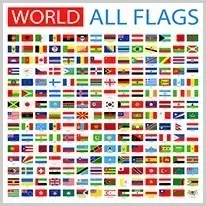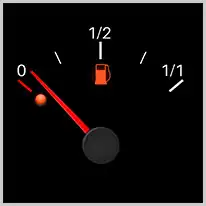Vocabulaire
Apprendre les adverbes – Coréen

모두
여기에서 세계의 모든 국기를 볼 수 있습니다.
modu
yeogieseo segyeui modeun guggileul bol su issseubnida.
tous
Ici, vous pouvez voir tous les drapeaux du monde.

혼자
나는 혼자서 저녁을 즐기고 있다.
honja
naneun honjaseo jeonyeog-eul jeulgigo issda.
seul
Je profite de la soirée tout seul.

저기
저기로 가서 다시 물어봐.
jeogi
jeogilo gaseo dasi mul-eobwa.
là-bas
Va là-bas, puis pose à nouveau la question.

거의
연료 탱크는 거의 비어 있다.
geoui
yeonlyo taengkeuneun geoui bieo issda.
presque
Le réservoir est presque vide.

꽤
그녀는 꽤 날씬합니다.
kkwae
geunyeoneun kkwae nalssinhabnida.
assez
Elle est assez mince.

조금
나는 조금 더 원해요.
jogeum
naneun jogeum deo wonhaeyo.
un peu
Je veux un peu plus.

아래로
그는 계곡 아래로 날아갑니다.
alaelo
geuneun gyegog alaelo nal-agabnida.
en bas
Il vole en bas dans la vallée.

거의
거의 자정이다.
geoui
geoui jajeong-ida.
presque
Il est presque minuit.

무료로
태양 에너지는 무료입니다.
mulyolo
taeyang eneojineun mulyoibnida.
gratuitement
L‘énergie solaire est gratuite.

밤에
달이 밤에 빛납니다.
bam-e
dal-i bam-e bichnabnida.
la nuit
La lune brille la nuit.

반
유리잔은 반으로 비어 있습니다.
ban
yulijan-eun ban-eulo bieo issseubnida.
moitié
Le verre est à moitié vide.

